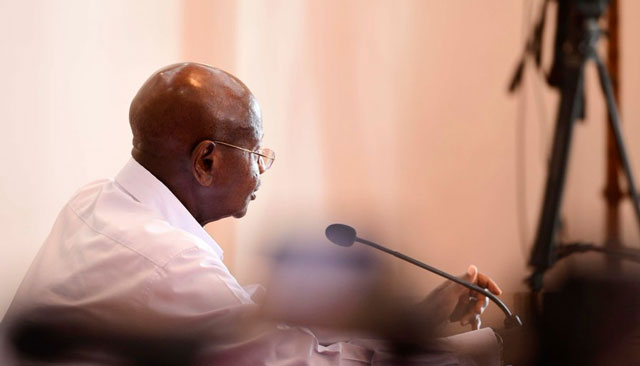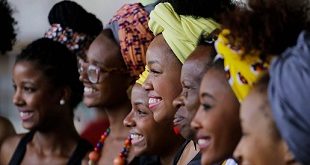
Why blaming Museveni for runaway corruption is politically appealing and why it is misleading
THE LAST WORD | Andrew M. Mwenda | President Yoweri Museveni has presided over the worst levels of public sector corruption in Uganda’s history. The scale and scope of corruption grows every year. Indeed, corruption could easily be the largest sector of our economy today. Ugandans are angry, very angry at the impunity that has come to define public life in our country. Officials exposed for stealing public funds walk with their heads high. Corruption has been so normalised; it is a form of rule. Many are convinced that the solution is to get rid of Museveni.
I understand why such a solution appeals to many, if not most, people. It is human nature to attach a human face to a problem. For then, people can know the villain and blame him or her for the problem. In ancient times, whenever there was an epidemic, people would find someone, usually a woman, accuse her of being a witch responsible for the mass death. She would be lynched in public. In our case, it makes sense to identify Museveni as the villain whose long presidency explains the levels of corruption. Removing him would end the problem and we become happy ever
Yet I think Museveni is not the architect of the corruption we see around us. He is both a beneficiary and captive of it. Museveni has ruled for long because he is both a realist and a pragmatist. He understands our society very well, and I think intuitively. He therefore responds to its needs and desires with precision. This has allowed him to climb down from the revolutionary idealism that animated the NRM struggle to the hard rock of reality. He appreciates that money is an important political resource.
In a poor country like Uganda trying to be run as a democracy, you need money to build an electoral and then a governing coalition. Money is the heartbeat of a democracy in every country, including rich ones. In advanced countries, rich people and their corporations finance political parties and candidates during elections. In exchange, they get policies favouring the industries where they make money. In the USA, you have big tech, big pharma, insurance companies, the arms, finance and oil industries, etc. The public officials who do these policy favours for them end up joining these industries where they earn huge salaries after they leave public office.
In poor countries, there isn’t enough money from the private sector to finance politics. Those who hold power appropriate public resources directly to finance their politics or build constituencies of support. And because the money is little, it doesn’t make sense to try and secure political support through a strategy of providing a large basket of public goods and services to everyone. Buying off influential elites in the different ethnic, religious, demographic and professional communities is not just a cost-efficient and cost-effective strategy, it is fundamentally the only affordable strategy.
This is the strange world Kenyans found themselves in in 2002. After defeating President Daniel arap Moi’s KANU in elections, everyone was happy they had buried corruption. His successor, Mwai Kibaki, appointed the indefatigable anti-corruption activist, John Githongo, anti-corruption tzar. Within two years, Githongo who had lived and fought corruption in Kenya with relentless tenacity under Moi, ran into exile. “The system” was closing in on him to murder him. And “the system” was being run by his blood relatives whose theft he had sought to block or expose.
Like in other democracies in Africa such as Senegal, Ghana, Nigeria, Benin, Zambia and Malawi where opposition parties have defeated incumbents, every election has been fought over corruption. Yet every successive government in these countries has been more corrupt than its predecessor. And Museveni is not the president in all these countries. The same applies to other democracies in poor countries such as India, Sri Lanka, Bangladesh, Pakistan, Bolivia, Nicaragua, etc. America’s experiment at democracy in Afghanistan and Iraq unleashed levels of corruption that appalled even the Americans used to money politics. The intensity of corruption seems directly proportional to the level political competition.
So, if Ugandans, Africans and other people in poor countries want to limit the scale and scope of corruption, they need to rethink how to organise power. It is clear to me that democratic politics along Western lines only encourages corruption. Yet I am reluctant to recommend “authoritarian” power. This is because the worst corruption in most of Africa has taken place under “despotic” governments. Mobutu Sese Seko in former Zaire and Sani Abacha in Nigeria presided over the worst levels of corruption under “despotic” power. The most honest governments in Africa today are Rwanda and Eritrea both of which are accused of being authoritarian.
Note that I have put words like authoritarian and despotic in inverted comas. This is because they are often arbitrarily used (and abused) by Western nations, their journalists, diplomats and academics for political reasons. What African intellectuals and citizens need to think about is how to reorganise, exercise, distribute and reproduce power in such a way that leaders find it in their interest to address the common good than service their own interests. I admit I do not have a clear design of this system. But I know that copying and pasting Western democracy onto our societies is not the solution.
By every measure of democracy made-in-the-West, Uganda is ten times more democratic than Rwanda. We quarrel, we abuse, we shout and yell at Museveni as we wish. During elections he faces a real threat of losing power. Even I as an admirer of President Paul Kagame and the Rwandan experiment can easily admit that. Yet the Rwandan state is tens of times more responsive to the needs to the Rwandan citizens than the Ugandan state. In practically every area of human flourishing, the Rwandan state seeks to serve the people of Rwanda.
I find the state in Uganda much impervious to the collective needs and aspirations of its citizens. Where it is responsive, it only does so by targeting groups for opportunistic political benefits. The administrative incompetence of the state in Uganda is a product of our politics. That is why there is no difference in the quality of governance and its outcomes between the districts managed by NRM and by opposition parties. Where there is a difference, it is because of the tenacity of an individual local government, like the former mayor of Fort Portal, Asaba Ruyonga. People like him do not survive long because they block others from “eating”.
*****

amwenda@ugindependent.co.ug
 The Independent Uganda: You get the Truth we Pay the Price
The Independent Uganda: You get the Truth we Pay the Price




“…it is human nature to attach a human face to a problem. For then, people can know the villain and blame him or her for the problem”.
Suffice it to say, then, therefore, that Tibuhaburwa is the most opportunistic despotic ruler Uganda has ever had in history!
Mr Tibuhaburwa reasoned then that he went to the bush to get rid of despotic, inhumane, incompetent and corrupt governments (both Iddi Amini and Apollo obote); up until this day he still blames and calls them “swines” for all the evils bedeviling this country under his 40-year authoritarian rule. He even calls himself Uganda’s small ‘god’!!
The president is indeed the father of corruption. He removed politics of the gun and replaced it with politics of the tummy.